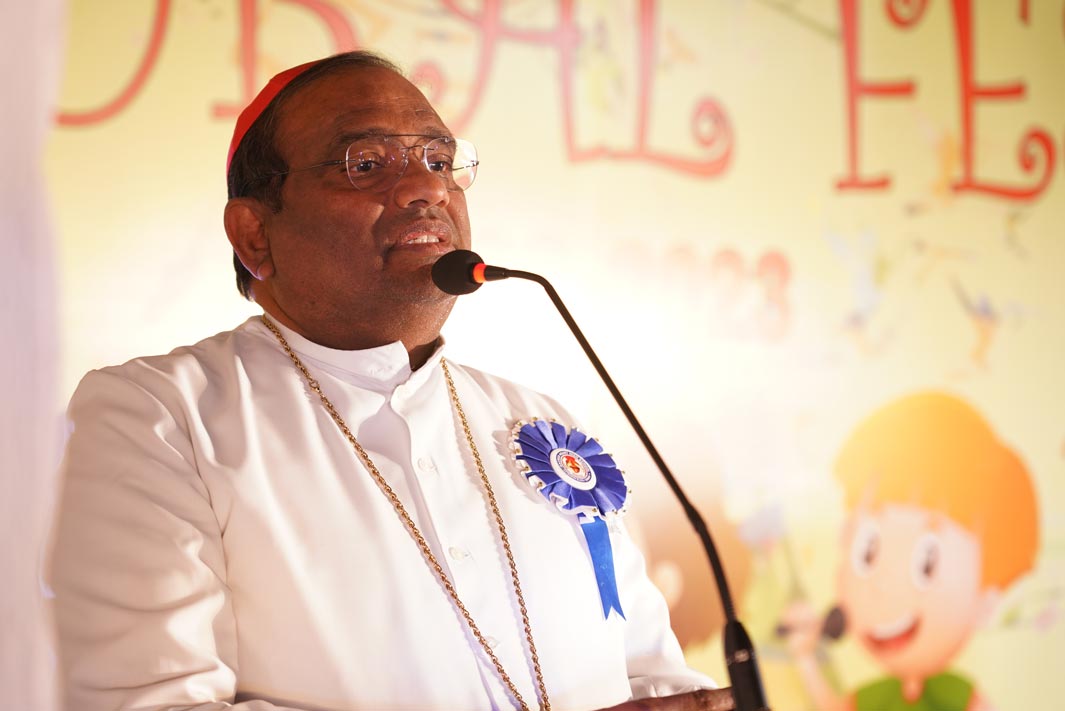Cardinal Poola: Don't ignore the parts in Dignitatis Infinita about the poor
The Archbishop of Hyderabad looks at the media reaction to the declaration released by the Dicastery for the Doctrine of the Faith on human dignity. The media are “focused on gender theory, sex change, surrogacy etc., but” people who “struggle with poverty, exploitation, discrimination, lack of access to primary healthcare” cannot leave others indifferent.
Hyderabad (AsiaNews) – Focusing on bioethical issues is to offer a partial (and too easy) reading of Dignitatis Infinita, the doctrinal declaration on human rights released on Monday by the Dicastery for the Doctrine of the Faith, a view supported by Card Anthony Poola, archbishop of Hyderabad, in comments he shared with AsiaNews, starting with the reactions generated in India and beyond by the Vatican document.
“[W]e need to confront those socio-cultural and religious thought-patterns that are behind why many in India still live in subhuman conditions,” something that Dignitas Infinita challenges.
It is significant to note that Card Poola is the first Indian from a Dalit family (once referred to as "outcasts") to be raised to the cardinalship in the consistory convened in 2022 by Pope Francis. Because of his direct knowledge of a form of negation of human dignity, his testimony takes on particular significance.
The Vatican's document on human dignity comprehensively reflects the Catholic Church’s enriched understanding of dignity, in light of Biblical teachings and tradition, and the implications it has on diverse spheres of life.
Global media as well as Indian newspapers largely focused on gender theory, sex change, surrogacy etc., but the doctrinal teaching covers more ground than this, [and] that needs to be explored. Topics such as poverty, migration, violence, human trafficking, abuse are burning issues that need urgent attention in the Indian context.
Undoubtedly, human dignity is denied to millions across the country as they struggle with poverty, exploitation, discrimination, lack of access to primary healthcare and education, denial of rights, etc.
Dignitas Infinita challenges us, especially the Church, to engage in a discussion on the increasing gap between the wealthy and those deprived of the basics, on those who migrate to escape and survive, on the normalization of violence, on those living on the peripheries whose lives do not matter.
In light of the Gospel values, we need to confront those socio-cultural and religious thought-patterns that are behind why many in India still live in subhuman conditions and find ways to ensure that their sanctity and dignity are recognized and upheld.
Speaking of issues that are remotely important may be easy but it is not easy to discuss the problems in which we are all part of. To reflect on the dignity, or the denial of it, of a migrant living next door or the poor in the neighbourhood is not easy but the Vatican Instruction reminds us to place them in the centre of our conversations.
The Declaration also invites the Indian Church to discuss the structural causes of poverty and injustice and violence and try to find ways to uphold the dignity of the millions in our contexts.
(Nirmala Carvalho contributed to this article)
* Archbishop of Hyderabad
29/05/2022 21:22







.png)










